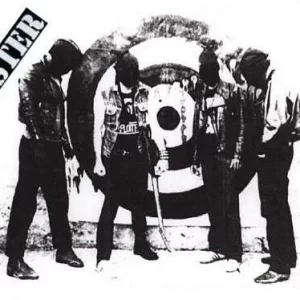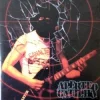History Ulster
In 1979, São Paulo's ABC region was Brazil's largest industrial complex, employing thousands of metallurgists. At the same time, there appeared the first signs of a huge social crisis that would shake the structure of the country. The Brazilian Detroit produced not only strikes and unemployment, but also insurrection in several cultural fields - specifically in the music scene which drew its inspiration from the European and American punk movement. The first crop of punk bands had no technological resources, only their dissatisfied scream. Ulster were one of these first bands to give back to the system its own aggression with visual and sonic violence.
In the end of 1979, in the industrial shed of São Bernardo do Campo, Ulster was born, with Betão on drums, Vladi on bass, Luiz (also in Brigada do Ódio and Olho Seco) on guitar and Mauro on vocals. The sound was fast and noisy, energetic and compelling, with direct influences of early '80s punk, such as Discharge, Disorder, etc. The name was inspired by the terrorists of the IRA (Irish Republican Army), who fought battles in the streets of Ulster, Ireland. As a result, the lyrics they wrote were quite provocative and many of them dealt with acts of terrorism, such as the songs "M-19," "Bandeiras Vermelhas" ("Red Flags"), "Morte aos Velhos," etc.
Rough, aggressive and absolutely true, Ulster lived for two years rehearsing and playing in São Paulo's most obscure ghettos. They left the shadow of anarchy wherever they passed, with extremely fast and distorted music along with a unique look. Many extraordinary stories can be told about the shows; however, the focus is the authentic feeling from the first phase of the Brazilian punk movement. At that point, many bands believed they could do something completely independent from the massive recording industry and press opinion. These bands became the scratch material for records and fanzines.
In 1982, Ulster participated in two tape compilations: Decaptados and Contra tudo que é comercial e nada de novo nos oferece ("Against that which is commercial and offers nothing new"), both with Hino Mortal and Submundo. They also were part of the punk festival "O Começo do Fim do Mundo", but they didn't want to participate in the record because they were prejudiced with the recording quality. (After 13 years this mistake was rectified and the band was included in the CD version with the song "Heresia".)
The band received much attention for their excellent and aggressive performance on stage - because they always used to appear using black hoods to cover their faces, looking like true terrorists, along with the incredible sonic barage they produced.
Ulster's last time together as a band was in the mid-1983, when they broke up, due to the "failure" of the punk scene.
"A lot of stuff was told about Ulster in 1982-83, a reasonable coverage from the great press, but nothing was really recorded well. Ulster was more than a simple reaction symbol for those lucky ones who had the opportunity to watch that Pauliceia's gig in 1983, where four masqueraded guys played on the back of a truck. An event so violent that many other band didn't show up, fearing retaliation. Ulster was, in my opinion, the most truly radical band from Brazilian punk scene ever. They took speech against the system to the extreme, not only with words, but with attitude as well. This was a time where a simple behavior deviation could take one to jail. Here we don't show sound quality, we show rebellion in its more pure and real state"
(Fernanda Kanaan)
In 1994, twelve years after their last show, Ulster regrouped to begin the second phase of the band, and has since released several records and played many shows.
Creative Commons By-SA License
 FM
FM

